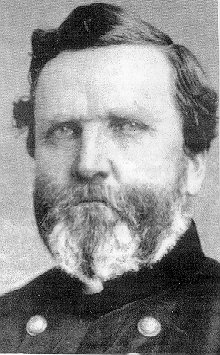Controversy
George Thomas was ‘regular army’ and strongly believed in army protocol. And although he had as much professional ambition as the rest of the General Officer corps, his strict sense of ethics did not allow for the playing of ‘politics’ for promotion. He believed that the only allowance for an officer to be promoted over his senior was when that officer recently performed with great distinction on the battlefield.
His sense of loyalty to his commanding officer and the army twice made him turn down promotions when he thought it was not justified under army protocol. It also made him protest an appointment of a superior in command to someone who was less senior to him.
Unfortunately, Thomas had a hard time believing that other regular army officers might not have the same strict code of ethics as himself. Or that a superior in command might not give give him the credit he earned on the battlefield.
The following web pages will explore Thomas’ relationship with three generals: Grant, Sherman and Schofield – all these men would become head of the Army and played their part during the war and afterwards in minimizing the accomplishments of General Thomas in the eyes of the general public to the point that, after the Civil War veterans passed away, Thomas was lost to history.
Note that this is my opinion and currently not the popular one. You are invited to research this further and form your own opinion.
1. Grant and Thomas: A Classic Case of Micro-Management – Bad for Business; Worse for Armies
2. Sherman and Thomas: What Happened to Thomas’ Plan for Snake Creek Gap?



